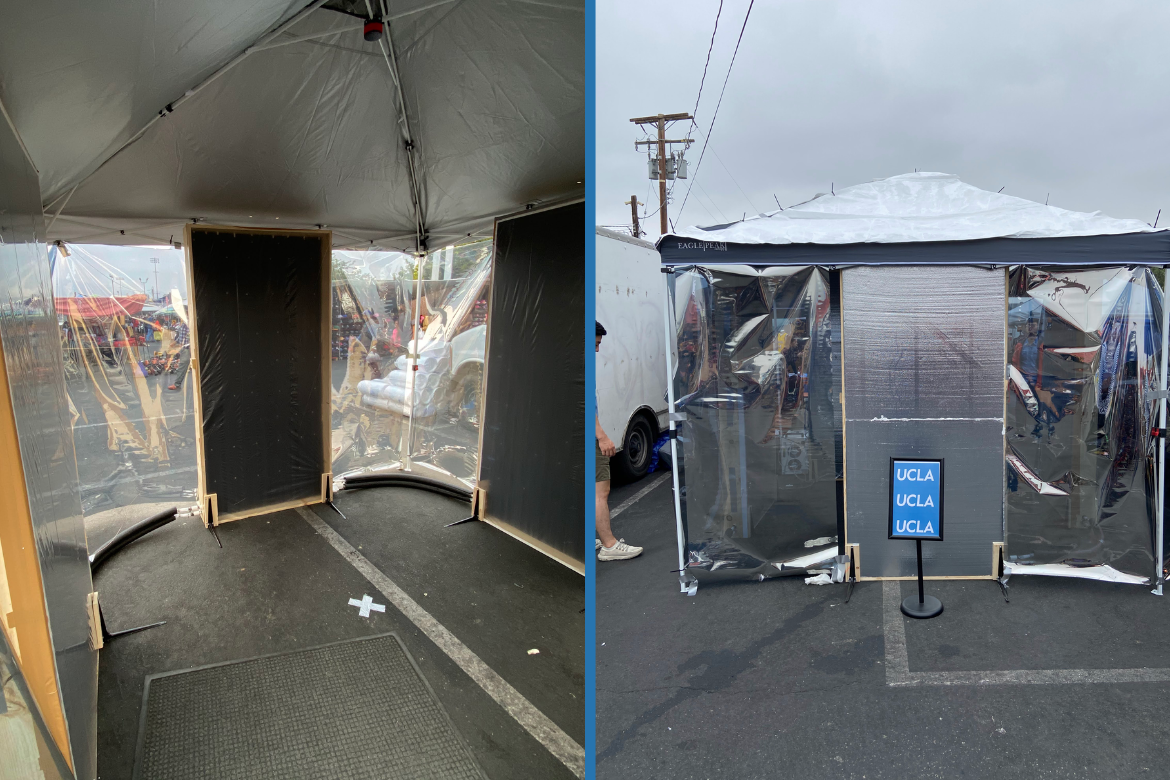If you’ve ever been stuck in gridlock traffic on the 405 or circled the block looking for parking in L.A., you’ve experienced the kinds of problems Michael Manville has spent years researching and trying to solve. As professor and chair of urban planning at the UCLA Luskin School of Public Affairs, Manville is reshaping how we think about transportation and housing in a sprawling city like Los Angeles and turning his research into real-world impact.
At the center of Manville’s transportation research is a deceptively simple idea: the way we price things matters and how we price things shapes how we use them.
” Driving costs less than it should, because the full social costs of driving, like congestion, pollution, infrastructure wear, aren’t reflected in what we pay to use our roads.”
“Driving is too cheap, and housing is too expensive,” he says. “Driving isn’t cheap in the absolute sense of the word ‘cheap’ because cars aren’t cheap and gas isn’t free, but in the sense that it costs less than it should, because the full social costs of driving, like congestion, pollution, infrastructure wear, aren’t reflected in what we pay to use our roads.” The price of housing, meanwhile, is driven up by restrictive land-use policies that limit supply.
Manville’s first introduction into urban planning began in a newsroom while covering transportation and housing topics as a local reporter. When the newspaper he worked for went bankrupt, he joined the local planning commission. Eager to turn his newfound passion into a career, he enrolled in the urban planning master’s degree program at UCLA and after a summer as a research assistant, decided to pursue a Ph.D. Today, he leads the department that jumpstarted his second career.
Building on the groundbreaking work of his mentor Donald Shoup, former UCLA urban planning professor and pioneer in parking reform who famously argued that free or underpriced parking distorts urban development, Manville and many other experts in the field have expanded this logic more broadly, emphasizing that it’s not just parking that’s mispriced, it’s also the roads themselves.
One proven strategy to address this is congestion pricing, a transportation policy that charges drivers a fee to use certain roads during peak traffic times. A controversial idea that has gained some traction in recent years, the goal primarily is to improve traffic flow and lower pollution, although it can also generate revenue for public transit and infrastructure.
It’s the idea that using roads during peak times should come with a price, just like electricity or water. “We meter every other government-owned utility,” Manville explains, “but not roads.” “It’s the only system that we don’t charge prices for, and it’s not a coincidence that it’s the only system that colossally breaks down about two times a day.” Manville argues that the same basic principle we apply to everything else in our economy, pricing goods and services based on demand, should also apply to road usage.
“We meter every other government-owned utility, but not our roads. It’s the only system that we don’t charge prices for, and it’s not a coincidence that it’s the only system that colossally breaks down about two times a day.”
Cities like Singapore prove it can work. In Singapore, dynamic tolling keeps traffic flowing at 45–55 mph even in a city as densely populated as San Francisco. Manville argues that Los Angeles could reap similar benefits if it embraced the idea. “We’ve normalized the dysfunction of our transportation system,” he says. “But there’s nothing inherently fair about free roads, or unfair about charging for their use.”
For Manville, reimagining cities isn’t just about policy; it’s about turning research into practical, real-world implementation. At UCLA Luskin, he says, that happens through teaching the next generation of planners, working directly with policymakers, and ensuring research is more accessible to community members. “The biggest impact we can have,” he explains, “is making sure our students leave with the ability to weigh tradeoffs—not chase perfect solutions.”
When asked what he hopes for the next generation of urban planners who will be tasked to solve some of the most complicated issues our cities face today, Manville had some wisdom from his own experience as a young planner.
“I came to UCLA convinced there were a bunch of right answers,” he reflects. “But the biggest lesson I’ve learned, and hope to pass on, is that progress comes from understanding the nuance and complexity of the issues we hope to solve. In a city as vast and diverse as L.A., differing perspectives are inevitable and real change begins with listening, especially to those you may not agree with.”


